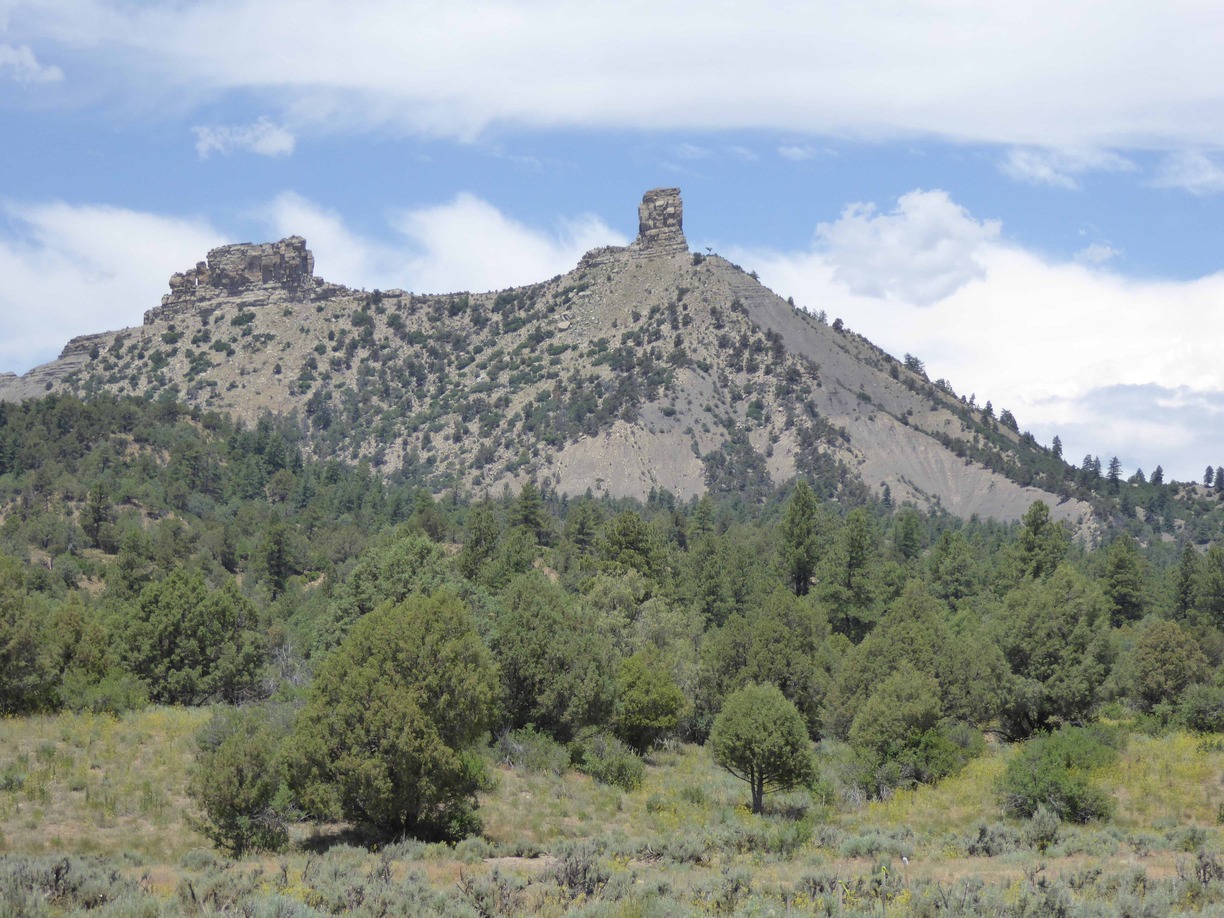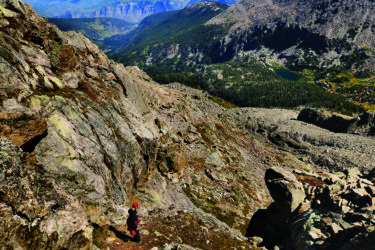The Local newsletter is your free, daily guide to life in Colorado. For locals, by locals.
Eclipse fever is setting in. This celestial event, which involves a bit of serendipity between the sun, moon, and Earth, is a big deal because it’s an all-American occurrence: It’s been almost 100 years since the shadow of an eclipse has passed from the west coast to the east coast. And on August 21, when the moon blocks out the sun, the path of totality will pass through nearby Wyoming.
However, if you spaced on making plans, you’ll find that most hotel rooms are booked up and rates are sky high in areas that are in the path. However, this doesn’t mean that you have to miss out. From viewing parties in National Monuments to pampering experiences during the event, there’s still time to plan your very own out-of-this-world experience, right here in Colorado.

(Read 5 expert tips for viewing the Great American Eclipse)
For a Historical Experience: Go to Chimney Rock National Monument
Step back in time to a location where ancient Americans watched a previous solar eclipse—in 1097. The Partial Eclipse of the Sun program at Chimney Rock National Monument will include explanations of the eclipse by an astronomer and provide historical insights into eclipses through the eyes of Native Americans, set to the sound of Native American flute-playing by Charles Martinez. Guests are given eclipse glasses before the drive up to the High Mesa for the show. Reservations are recommended.
Or… Step back in time at Florissant Fossil Beds National Monument and learn to make a pinhole camera to safely view the event.

For a Scientific Experience: Visit the Space Foundation Discovery Center
As the region’s first and only dedicated space, science, and technology center and museum, the Space Foundation Discovery Center in Colorado Springs is throwing a Total Solar Eclipse Party. You can watch live feeds of the totality from different locations in the U.S., build your own eclipse viewer, and use solar-viewing telescopes, tubes, and boxes for a close-up view. Admission is free for children under 2; $2 for ages 2–4; $5 for ages 5–17; and $10 for adults.
Or… Join Aspen Science Center and Pitkin County Library for their viewing event, where the sun will be 92 percent occluded at the peak of the eclipse. Telescopes and pinhole cameras will be available, as well as demonstrations and simulations.
For a Pampering Experience: Head to The Ritz-Carlton, Bachelor Gulch
In Beaver Creek, the sun will be 90 percent occluded and The Ritz-Carlton, Bachelor Gulch is the only Ritz-Carlton property hosting an event in honor of the eclipse. Kids can build a personal pinhole camera and a naturalist will be on hand for the inside scoop on the eclipse. Darkness making you a bit stressed? The Ritz-Carlton Spa will be providing five-minute chair massages, which you can enjoy alongside a Total Eclipse cocktail made with coconut rum, Jägermeister, and pineapple juice.
Or… Visit the Westin Riverfront Resort & Spa in Avon. The resort is partnering with local science center Walking Mountains to offer a Solar Eclipse Watch Party on the resort’s patios. The free event will feature elements like a craft station for making sundials, an activity station that explores the “solar system of scale,” and free solar eclipse viewing glasses. Book the Rocky Mountain Eclipse Getaway to make it a destination event.
For an Athletic Experience: Total Eclipse of the Sun Run 5K & 10K
If the idea of the sun being covered by the moon makes you want to run, Fort Collins has you covered. The Total Eclipse of the Sun Run is a virtual 5K and 10K, which means you can choose your own course and time yourself from wherever you are. You can complete your race at any time during August, but doing it on the actual day of the eclipse is much, much cooler.
Or… Enjoy a livestream eclipse experience from your office, couch, or bed with the Total Solar Eclipse app. Doesn’t get much easier than that!
The 2017 Solar Eclipse will take place on Aug. 21, 2017. The eclipse will begin in the middle of the Pacific Ocean around 9:46 a.m. MST when the moon will start creeping in front of the sun. It will peak in Denver around 11:45 a.m.








